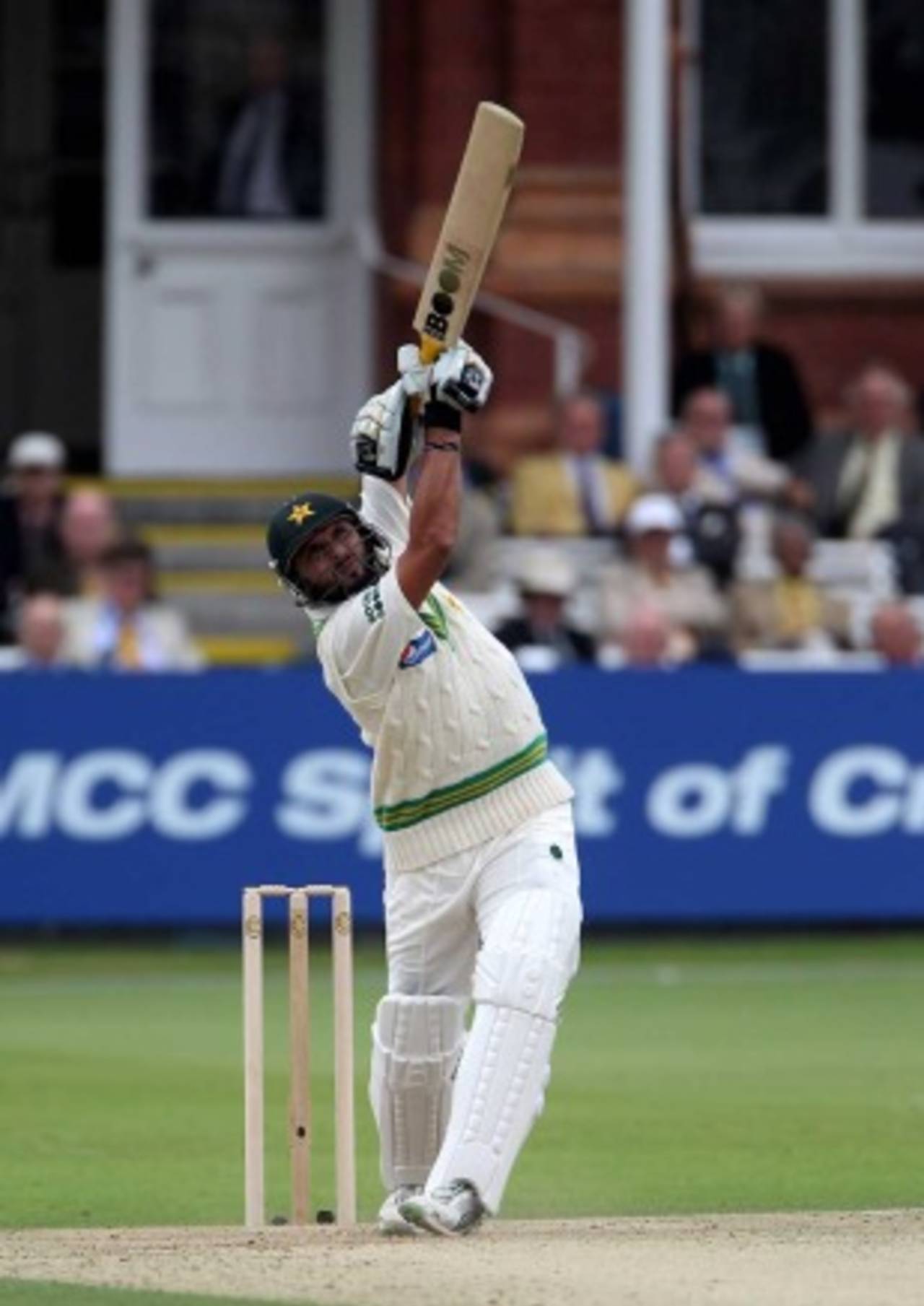The Pakistan v Australia Test has confirmed that I live in a different universe to the one Henry Blofeld inhabits. As I sat atop the Pavilion on Wednesday evening with the radio commentary on my earpiece, I heard him describe Shahid Afridi's cameo earlier on as “a quite disgraceful innings.”
In my world, “disgraceful” implies some breach of decency or morality, and I fail to see how an innings of thirty in ten minutes is a breach of either. Had he cover-driven the bowler rather than the ball or spent ten minutes audibly and obscenely haranguing the umpire, “disgraceful” would certainly be appropriate, but there is no moral turpitude in hitting sixes or holing out at mid-off. Anyone who thinks there is has, at least in my view, a badly malfunctioning moral compass. Where I come from, the worst you can say of Afridi's innings is that it was stupid or reckless or irresponsible.
Not that I would, as a matter of fact. I have already pleaded guilty to holding Shahid Afridi in high esteem – I am, if you like, a Boom Boom Boy biased towards seeing his actions in the best light – but I thought his innings an entirely rational choice in the circumstances obtaining at the time. I am perfectly willing to listen to an argument that it wasn't, but it had better be a convincing one.
When he came in, Pakistan were still 170 behind with only the tail to come. Five out of the top six had already failed. While Kamran Akmal's dismissal in particular was down to total incompetence on his part, two or three of the others had certainly succumbed to balls which were almost unplayable. The ball was swinging around and seaming, so that good balls were made dangerous and excellent balls close to lethal. Survival for any length of time demanded a solid defensive technique and a decent helping of luck (both of which Salman Butt had displayed).
Knowing that he is not a defensive batsman in the Rahul-Dravid class, Afridi would surely have realised that it was likely to be less than an hour before some holy terror of a ball arrived to end his innings. The question for him, therefore, was how best to use what little time he had.
Presumably the morally-approved choice on Planet Blofeld would have been to attempt to dig in and play cautiously, blocking here, nudging there and hitting the odd, very bad ball for four. If he did well, he could have hung around and scored 25 off 60 before the inevitable jaffa sprayed its juice over him. For most batsmen, it might well have been the only sound option.
But Boom Boom Afridi had another course open to him. He is one of the very few people who could try mounting an all-out assault like Ian Botham's at Headingley in 1981 or Nathan Astle's at Christchurch in 2002, and have a modest chance of success. Granted, reaching a hundred or two as they did was very unlikely, but in the circumstances Afridi was facing, where he could expect to score no more than about 25 anyway, reaching even 20 would leave his team no worse off. And if he could get 70 or more, he would have changed the game's momentum. Only if he failed completely would he have done real damage to his side's cause.
Had things been different, I might have much more reason to criticise. Were he batting ahead of the English or South African tails which contain the likes of Swann, Steyn, Morkel or Bresnan, there could well have been more mileage in trying to hang around. If Pakistan had been 17 behind rather than 170, digging in until they were about 20 ahead and then launching an assault would have been my recommendation.
But things were not different, and so I am entirely content with his choice.
And that, my friends, concludes the case for the attack.
